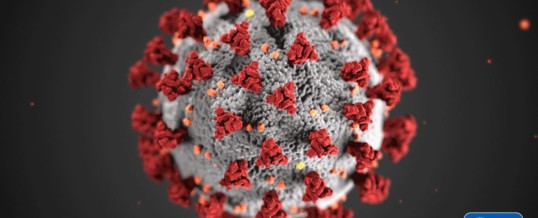
With the help from IBCCES board members, we have gathered some tips and suggestions to keep in mind with the rise of COVID-19 disease cases. These tips are tailored for individuals and families with a loved one on the autism spectrum but can be helpful for may individuals.
Tip #1 Stay informed
The most important thing you can do is make sure you have a conversation with your children providing statistics and facts as soon as possible making them fully aware of what is happening. The goal is not to scare them with information, but help them feel informed and prepared. Be mindful of media influence contributing to anxiety, and potential misinformation being shared by peers and other sources. Make sure you are gathering information and updates from reputable sources.
Tip #2 Practice good hygiene
- Wash your hands often with soap and water or use an alcohol-based hand sanitizer.
- Create visual cues and reminder cards to demonstrate hand washing practices. Consider posting the CDC hand washing poster by the sink along with practice, modeling, and supervision.
- Cover your mouth and nose with your elbow or a tissue when you cough or sneeze.
- Avoid touching your eyes, nose and mouth if your hands aren’t clean.
- Avoid close contact with anyone who is sick.
- Avoid sharing dishes, glasses, bedding and other household items if you’re sick.
- Clean and disinfect surfaces you often touch.
- Stay home from work, school and public areas if you’re sick.
Tip #3 Remain calm
It is important for parents and caregivers to portray a calm demeanor during an emergency such as a quarantine, travel delays, or other significant changes in routine or mobility. We understand it is difficult to keep emotions at bay during stressful situations such as this, but your other family members may sense your emotional state and mimic it.
Tip #4 Be prepared for immediate needs before a possible quarantine
Create a network of relatives, friends or co-workers to assist in an emergency. Don’t be afraid to ask for help in making a plan ahead of time. Also, make sure to wear a medical alert tag or bracelet to identify you or your family member’s needs. This may alleviate some of the stress for both you and any staff assisting in the case of a quarantine or emergency.
Also, in case of COVID-19 quarantine, be sure to pack a safety & calm kit, which could include:
- Weighted blanket
- Sensory toys, therapeutic comfort aid or other comforting distractions
- Personal hygiene items
- Identification and important documents (insurance, birth and marriage certificates, and special-needs forms)
- A few changes of clothes
- iPad or phone with charger to smooth or comfort along with headphones
- Ear plugs, headphones or eye shades
- An ID bracelet and autism information cards to explain behaviors to others.
- Collect non-perishable foods that meet any dietary needs or restrictions(if that is not allowed in quarantine areas, create list to provide to medical staff)
- Bring all medications for child or adult with autism to ensure consistent dosing
- Use Hurricane/Blizzard preparedness protocols and checklist as additional resources
In Case of a quarantine or medical emergency, keep the following in mind:
- Keep routines as close as possible to a “typical day”.
- Using a word, picture, or picture-word schedule, make substitutions where necessary. If school is closed, replicate the schedule as close as possible with academics or homework practice and other school activities such as snack, story time, lunch, etc. where possible.
- Explain to the child in a factual, positive way why these changes have occurred and that it’s important to stay safe and healthy
- Like all of us, your child will want to know when they can resume the lifestyle they were used to. If you know, then count off the days until that happens on a calendar.
- Similarly, it will be important to explain to a child why a parent or other family member is quarantined away from home should that happen.
Please note: Every case may be different. Please check with your local or state health officials for more specific protocols, whether other persons can assist during quarantine, protective gear that would be needed and in what capacity Also keep your eye on up-to-date information provided by the CDC.
Learn More About IBCCES Certification Programs
Fill out form below to find out more about training and certification offerings
MAR
